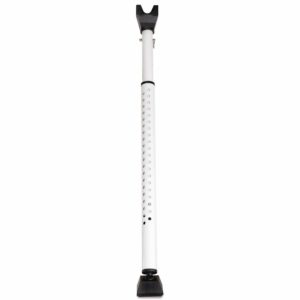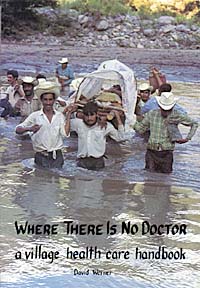Written by Greg Ellifritz
I’ve been talking to a lot of people lately who have expressed the desire to be more prepared. They all talk about being “ready” or “prepared for an emergency”. Some even use the term “survival”…although all are quick to distance themselves from those lunatic “survivalists”. The people I talk to want to be prepared for a variety of possible situations. Some are worried about nuclear holocaust. Some fear natural disasters. Economic collapses, terrorist events, global climate change, pandemics, and asteroid strikes are also discussed, albeit in hushed tones.
The conversation usually ends with a statement and question similar to this:
“I don’t have the time and money to invest in all the class you take and the gear you buy. I still have to take care of the kids and work a 60-hour a week job. What can I do to be better prepared to ensure that my family survives when things get bad?”
It’s not easy to give advice. Survival during bad times or emergencies is a function of too many things to list. Individual resources, skills, knowledge, adaptability, problem solving skills, and social networks all come into play. The particular catastrophes one wants to prepare for are also a factor.
Let’s begin by saying this…ANY preparations you make in ANY of the above areas will likely help you survive a cataclysmic event. No one can be prepared for everything, but everyone can do a few basic things and learn some basic skills that will help them through most emergencies. People just need a place to start.
I’m going to attempt to provide that starting place in a series of articles I will be sharing here. I really don’t have a crystal ball and I can’t predict every possible catastrophic event. I can however, give you plenty of advice that is logical and based on the most likely events that we in America might face. Many of your survival preparations are not incident specific. Preparing for a hurricane will also likely make you better able to live through an economic collapse or pandemic. It all helps!
What I am not preparing you for is an all-out “Mad Max” or “The Road” style apocalyptic meltdown. I really don’t see that being a viable possibility. Even if it were to happen, my little article isn’t enough to prepare you mentally or physically for the aftermath of such an event.
I’m also not going to tell you that you need a bunker in Montana stocked with dehydrated food and belt-fed machine guns. While cool, that’s out of reach for my average reader. I’m going to focus on simple workable solutions that you can START IMPLEMENTING TODAY.
I’m compiling this information from my 25 years of experience teaching almost every aspect of survival. I’ve spent a lot of my life outdoors, living and teaching in primitive environments. I’ve taught wilderness survival to teenage Boy Scouts and taught outdoor living skills to inner-city elementary school kids. I’ve taught austere medicine classes and defensive firearms skills for adults. I’ve also spent a good portion of time traveling in third world countries and living like the locals do, without the benefit of many modern conveniences that we all take for granted in this country. Finally, I’ve spent my life studying what happens during disasters of all sorts…reading about and talking with people who have survived natural disasters and economic meltdowns. This information is a compilation of my research efforts and experiences. It’s likely to end up as a book-length manuscript.
My list of friends and readers is a broad one. Everyone is at a different level with regards to preparations and skills. Each of the series of articles I write will detail actionable steps for three different types of individuals or families.
Type One (The Unprepared)– This group of folks has very minimal preparation for any type of emergency. They don’t have even the most basic of supplies salted away. If the lights (and heat) went out or the stores closed down, they would be in real trouble in less than a week. You are in group one if you can’t provide food, water, shelter, protection, medical care, and entertainment for your family for more than a short time (say one week) without outside assistance or visiting WalMart. Although most of my friends are better than average in their preparation skills, I would class the majority of people I know in this category. Your most pressing needs are BASIC SURVIVAL SUPPLIES.
Type Two (The Prepared, but Unskilled)– Many experts and theorists maintain that it will take more than just basic supplies to help you through any type of long-term emergency. While supplies make it easy to weather a short term collapse, in the long run NO ONE can stockpile (or defend) enough supplies to make life easy for the YEARS it may take to get things back to “normal’. Take, for instance, an EMP (electro-magnetic pulse) attack. Most estimates show that a few well-placed nuclear bombs high up in the atmosphere could knock out our entire electric grid for a period of 6-10 years. That means no electricity of any kind (besides your house, think about traffic lights, water filtration plants, gas pumps, grocery store refrigerators, credit card machines, ATMs, cell towers, and everything else that relies on electricity) for up to a decade. No one is realistically able to stockpile enough food and equipment to survive that long.
What is needed isn’t dehydrated food, it’s community. You have to know and trust your neighbors and rely on each other to take care of yourselves. You must have skills and knowledge to become an asset and not a burden to your community to ensure your survival. After you get the basics taken care of you’ll need to focus on SKILLS AND KNOWLEDGE.
Type Three (The Prepared and Skilled)– I would hazard a guess that fewer than 1% of Americans fit into this category. These people have all the basics handled and have at least some viable skills to offer their community. They are looking for the few little pieces of information or equipment to complete their preparations or make their lives a little more comfortable. I will be referencing lists of items and skills that were not necessarily vital, but in high demand during previous emergencies or modern day economic collapses. These folks just need some FINE TUNING and COMFORT ITEMS.
It is likely that you will find yourself bouncing between categories as you read my suggestions. Don’t worry. This isn’t an absolute classification system or something that requires strict adherence to a certain order. My suggestion would be to read the advice for each category. Make sure you have the suggestions in type one handled first and then pick and choose actionable items in categories two and three that you can start working on. This is a lifetime course of study and preparation! You’ll never be truly “done”. Just make a constant effort to keep pecking away at your weak points and within a short period of time, you’ll be ready to handle just about everything.
Here we go!
If you consider yourself a Type One person, with no significant current preparations, you need to work quickly to lay in some supplies. Looking at the various survival information available on the internet will have you thinking that your first purchase should be a rifle with 10,000 rounds of ammunition and a year’s worth of dehydrated food.
Slow down.
Let’s handle the most important stuff first. While food, water, and protection are all important aspects of survival, the most important is SHELTER. It will take days to die of thirst and weeks to die of hunger, but in the winter time you can freeze to death in a matter of hours without shelter. By shelter, I mean the ability to maintain a homeostatic body temperature…someplace where you can stay warm, dry, and protected. Having a safe lodging is also an important part of shelter. Shelter is especially important in any natural disasters, but it also plays a crucial role during pandemics, nuclear attacks, and even economic collapses. Here are some questions to ask yourself:
– Do you have the ability to make quick repairs to your house in the event of damage from natural disasters? Remember that in the event of a disaster, normally available resources might not be as common. After a hurricane or earthquake your local handyman or building contractor is likely to be overwhelmed. Can you make basic repairs for yourself?
– Do you have an alternate heat source for your house in case the gas and electric go out? How long can you keep your house warm with the items you have on hand? Do you know how to turn off water, gas, and electrical utilities to your house in an emergency?
– Do you have sleeping bags rated for the lowest temperature you are likely to experience for each member of your household? The sleeping bags will keep you warm even if your alternative heat source fails you.
– Do you have alternative shelter like a tent? If not, do you know how to construct a debris shelter or rig a tarp? Your house may be structurally unsafe and you may have to sleep outside. In the worst case scenario, you may have to flee your home and take to the road either on foot or in a vehicle. Having alternative shelter options is critical. Make sure you add good quality rain gear to your supply list as well.
– Do you know how to seal your house in case of a pandemic or nuclear emergency?
– Does your house have adequate locks and hardened exterior doors that will resist an attack (at least temporarily)? What about your garage? Can you secure your garage doors? If the crisis goes for a long time, you may have looters or gangs of criminals trying to steal your family’s supplies. Can you keep them out?
– Do you have a “safe room” that is somewhat impermeable from small arms fire in case of a sustained attack? What would provide the best protection from bullets
If you answered each of those questions affirmatively, you are well prepared! If not, here’s what you can do about it:
- Stockpile some emergency repair supplies according to your individual abilities. People with no skills or know-how could get by with a few rolls of thick plastic sheeting (or tarps) and a couple staple guns. If you are a little more mechanically inclined, put some plywood and lumber in the garage. Supplement that with nails, wood screws and a battery operated drill or saw. Have a couple spare charged batteries. A chainsaw is always a good thing to have for any natural disaster. Don’t forget the mixed gas, bar oil, and a few spare sharpened chains. Several rolls of large contractor grade trash bags and some duct tape will be handy for a variety of shelter-making and repairing tasks.
- It is critical to have an alternate heat source. A gas, diesel, or LP generator is a great thing to have (and something that becomes impossible to find during any collapse), but may be cost prohibitive. If you can’t afford that, get a kerosene or propane heater. They can certainly be fire hazards, but they can be used safely with a few precautions. Stockpile enough kerosene or gas to last a few weeks. If you have a fireplace in your house, get the chimney cleaned and buy some firewood for a secondary (or tertiary) heat source.
- Pick up sleeping bags and rain gear for every member of your family. Look at internet discounters like Sierra Trading Post or Campmor for some great deals. While you are there, pick up a couple of lightweight tents if you can afford them as well. If you can’t afford sleeping bags and rain gear, buy a few rain ponchos at the local sporting goods store and make your own sleeping bags by pinning together old blankets.
- Learn how to turn off your utilities (water, gas, and electric). Talk to your parents, handyman neighbor, or local fireman for more information. If that fails, check out the book Self Reliance during Natural Disasters and Civil Unrest to learn how.
- Google the term “Debris Hut” and watch a few YouTube videos to learn how to make one if you don’t have a tent. If you are adventurous, find a wooded area and practice making one.
- Check out the following links to learn about radiation protection and pandemic disease isolation techniques:
http://emergency.cdc.gov/preparedness/shelter/
- Check out your door locks. Make sure you have deadbolts on all exterior doors. Locking storm doors help as well. Check to see that the bolt on your deadbolt is at least 1″ long and the screws holding the latch into the frame are at least 2″ long and reach the 2×4 door frame. Buy a couple of “C-Clamps” to place in the track of your garage door (right above a roller) as an additional locking mechanism
- Consider supplementing your locks and windows with additional chains, bars, or the following products:
Master Lock 265D Door Security Bar
- Figure out a “safe room” location that is least likely to be penetrated by gunfire. Basements work well and so do bathrooms. A bathtub is likely the most bulletproof structure that you currently have in your house. Closets and small rooms can be hardened by the addition of 3/8″ or thicker sheet steel very inexpensively. This steel will stop all handgun rounds and many rifle rounds. Having such an armored closet may save your life.
These are some relatively simple and inexpensive steps to take. Start implementing them THIS WEEK!
TYPE TWO
If you are in TYPE TWO, and have all of the above handled, it’s time to learn a new skill. In every natural disaster or economic collapse, the medical system is overwhelmed or non-existent. One of the most valuable skills to learn is how to treat your own (or your family’s) medical conditions until the health care system is restored.
Formal classes are best for learning. Take a look at your local Red Cross to take a first aid course. First aid is likely going to be more useful than CPR, as CPR isn’t likely to be effective in a long term medical collapse. You will need to learn how to treat lacerations, burns, fractures, and bullet wounds first, before anything else. Besides the Red Cross classes, consider taking classes at one or more of these schools:
http://tdiohio.com/field-emergency-medicine/
http://www.wilderness-medicine.com/
Until you can get some formal training, study the following resources:
Survival and Austere Medicine an Introduction
After you read these references, take my advice and print them out in hard copy form. If the internet is shut down or the electricity is out for a long time, these will be valuable references!
TYPE THREE
For those of you in TYPE THREE who already have all of the above-listed supplies and skills (or for those of you who are overachievers and do all of the above before my next installment), here are a couple more things to consider purchasing. The below listed items are commonly listed as some of the first things that “disappear” during previous modern day collapses (Argentina in 2001 and Bosnia in the early 1990s). The next time you visit the store, pick up a few extra of these items and store them in a large plastic container in the garage or basement. Even if you do not end up using your surplus, these will make great “bartering” items to trade with your neighbors for the inevitable supplies that you have forgotten:
- Hand Can Openers
- Vegetable Oil and lard for cooking (or making improvised lanterns)
- Lighter Fluid (both charcoal and zippo)
- Baby wipes (besides their obvious use, they are great for cleaning yourself up when you don’t have running water)
- Vitamins (focus on multivitamins and vitamins C and D to boost immunity)
That’s it for the first installment. If all goes well, I’ll be adding a second installment full of a whole bunch of other things to think about soon.




